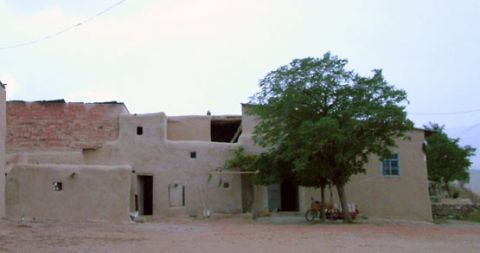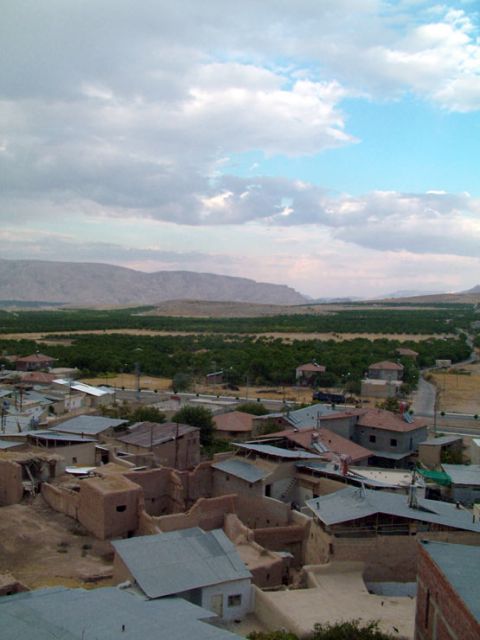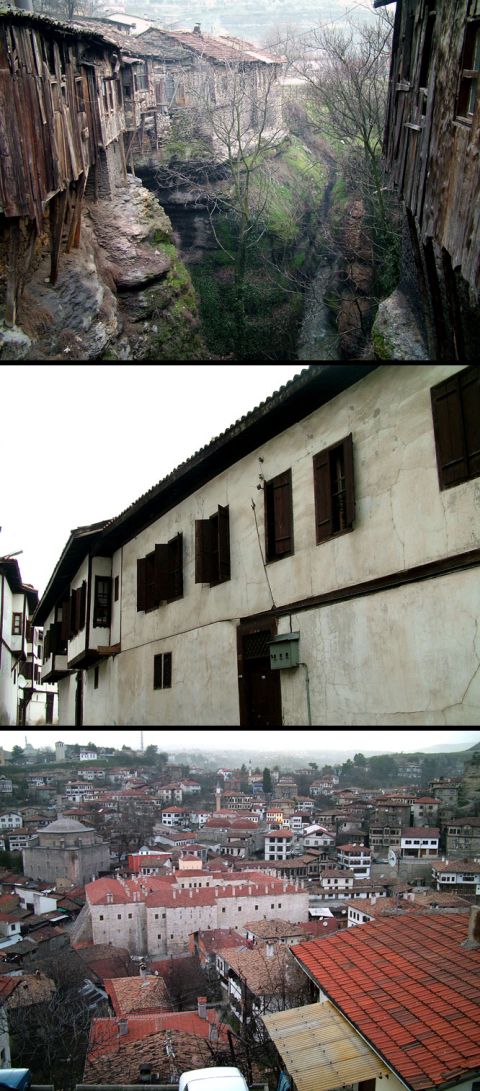Forums
| ArchSociety :: Forum :: Scribbling on sketch-pad :: Off topics |
|
« Previous topic | Next topic » |
| vernacular housing photo thread | ||
|
Moderator(s): Array, Array, Array, Array, Array, Array
|
| Author | Post | ||
| etipuf |
|
||
 Registered Member #430
Joined: Sat Jan 06 2007, 09:30pm
Registered Member #430
Joined: Sat Jan 06 2007, 09:30pm: istanbul Posts: 101 |
deal: post photos of vernacular housing from places you know its best if you post your own photos of places, there are many places online like archnet and all where you can get info on vernacular architecture so the point of this is sharing stuff from places we have been to. if there is anything that interests you, then you can just ask the poster for more info on that place. derived from the climatology thread, i thought we shouldnt limit this to the specific assignment. and i dont want just names and info on places, post some photos that demonstrate the characteristics of the place ok 
|
||
| Back to top |
|
||
| etipuf |
|
||
 Registered Member #430
Joined: Sat Jan 06 2007, 09:30pm
Registered Member #430
Joined: Sat Jan 06 2007, 09:30pm: istanbul Posts: 101 |
balaban village/malatya/turkey this is a village in the place ive been working on an urban planning project on. im posting photos of the general settlement pattern, a street and a façade view for a panorama i shot from the mosque in the village square, see here because its too wide to fit in the forum   |
||
| Back to top |
|
||
| etipuf |
|
||
 Registered Member #430
Joined: Sat Jan 06 2007, 09:30pm
Registered Member #430
Joined: Sat Jan 06 2007, 09:30pm: istanbul Posts: 101 |
these are from safranbolu/turkey, in the world heritage list oh and balaban above was from a hot dry climate, this is from a cool rainy climate  |
||
| Back to top |
|
||
| NEO |
|
||

 Registered Member #4
Joined: Thu Aug 04 2005, 04:54am
Registered Member #4
Joined: Thu Aug 04 2005, 04:54am: Dhaka Posts: 666 |
Very nice move Etipuf! Would you please tell a bit more about the mud structure of hot dry climate? I'm also going to publish some of the vernacular variants of my country soon. |
||
| Back to top |
|
||
| NEO |
|
||

 Registered Member #4
Joined: Thu Aug 04 2005, 04:54am
Registered Member #4
Joined: Thu Aug 04 2005, 04:54am: Dhaka Posts: 666 |
Here is a detail example of typical Bangladeshi rural vernacular dwelling. (In addition Bangladeshi deltaic climate is a monsoon climate with a heavy rainfall in summer and a short dry winter, major air flow is from south in summer and from north in winter) [We did a through study on the low cost vernacular construction technique in 4th year 2nd semester, under the guidance of Architect Bashirul Haq and Dr. Abu Sayeed M. Ahmed, DAN, Rubel_RAF, and Abdur Razzaq were my group-mates in this work] Typical single room mud construction dwelling Typical arrangement of rooms in a rural homestead Schematic plan of a room Firstly a place is selected from the mud is collected, vernacular construction workers collecting mud for construction Mud collection and dumping for seasoning Seasoning of mud in layers The construction system. 2' layers of mud is applied in layers, wood and bamboo used as the lintel or the roof construction Construction model Construction model An under-construction building (It's me there  )
Edited Fri Feb 02 2007, 04:52pm )
Edited Fri Feb 02 2007, 04:52pm
|
||
| Back to top |
|
||
| etipuf |
|
||
 Registered Member #430
Joined: Sat Jan 06 2007, 09:30pm
Registered Member #430
Joined: Sat Jan 06 2007, 09:30pm: istanbul Posts: 101 |
you actually got to begin building something out of your school studio? wow technically our mud houses are built in a similar way, with mud collected from around the site, usually the home owner himself builds it actually this informal construction is not very healthy, we were surveying people in balaban and they were complaining about how their houses were so fragile they needed repair even when it rained. to support the mud they use hay in the mixture. they begin building the wall thick and it can get thinner as you build up. this specific place doesnt use bricks of mud, they just pile it up until they have a wall. however the houses in safranbolu are wood reinforced earth and their system is more complex, diagonal wood supporters and more independency in house plans. you can find lots about safranbolu in archnet, not balaban though. the difference in housing type is, i see that your is supported by bamboos and has a roof. we dont have bamboos here, wood is used when necessary and the roof is flat. houses are usually around a courtyardish square and narrow streets. there are some cul de sacs and some passages go through the houses themselves, which is an authentic characteristic of this place- some houses are interconnected. plan types differ very much, ive been to one shaped like a tunnel with every room opening into each other. bigger houses with 2 storeys have barns in the first storey and sometimes seperate entrances to the second floor. my university is currently researching on earth building techniques and their applicability, actually i just checked their website again and it mentions an event in india on the frontpage http://www.kerpic.org/ -->kerpiç means earth construction in turkish, the website is in english you can also find some examples of how our professor tried to put earth in modern usage here: http://atlas.cc.itu.edu.tr/~isikb/ENG.htm |
||
| Back to top |
|
||
| nirghum |
|
||

  Registered Member #26
Joined: Mon Nov 28 2005, 05:52pm
Registered Member #26
Joined: Mon Nov 28 2005, 05:52pm: bits N bites Posts: 503 |
"An under-construction building, It's me there )"- NEO well said. NEO as an under construction  building . building .
|
||
| Back to top |
|
||
| etipuf |
|
||
 Registered Member #430
Joined: Sat Jan 06 2007, 09:30pm
Registered Member #430
Joined: Sat Jan 06 2007, 09:30pm: istanbul Posts: 101 |
hey dont pick on neo:D here is one from istanbul it is a jewish brick house from the historical balat district, we worked on the survey restitution and restoration projects of that last semester the house does not fit in all the typical characteristics of a balat house and the floor plans have changed a lot, so ive added a photo from that street with rather regular ones the climate in istanbul is very mild, you could say warm and rainy enough. building is near seashore (golden horn) and the streets in this district let ventilation in due to the grid system of the streets. the district originally had an organic street layout but several fires occured there and was rebuilt in a grid. |
||
| Back to top |
|
||
Powered by e107 Forum System

